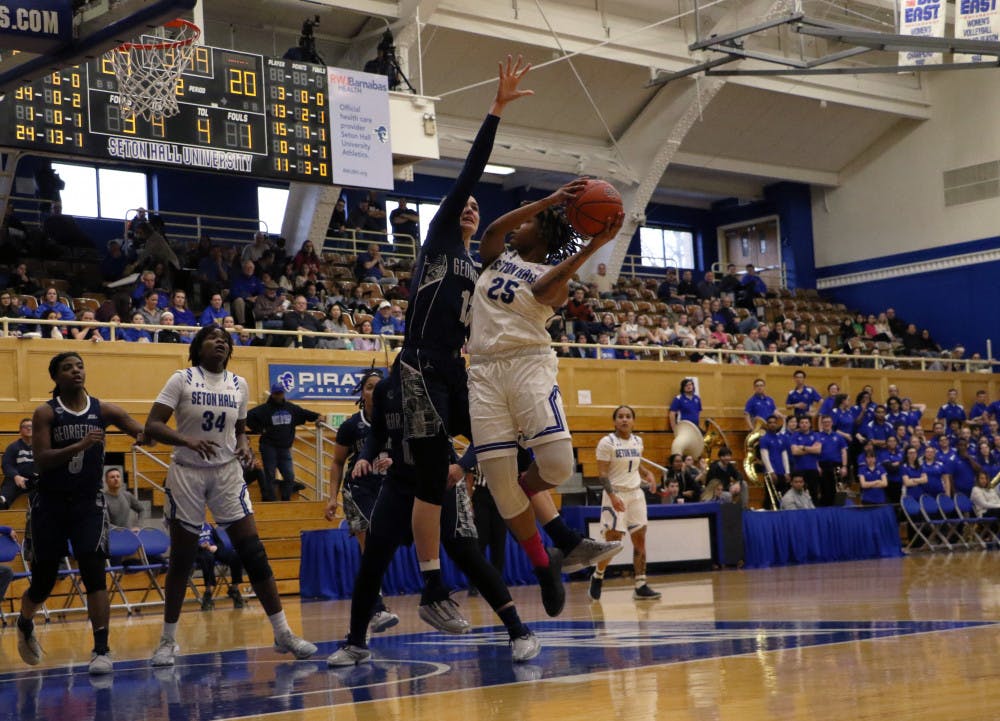Dear Editor:
The article "Faculty Senate Chair Wishes to Forge More Student Involvement" which appeared in the Thursday Oct. 6 issue of the Setonian contains two very misleading, indeed false, statements on the part of Professor David Beneteau, Chair of the Faculty Senate.
That "the modern university started in Europe in the 13th century as a union between students and the teachers" is simply not true. Colleges and universities arose in medieval Christendom as a creation by the hierarchy of the Catholic Church which sought to establish a form of higher education beyond that of cathedral and monastic schools. A witness to the distinctly Catholic religious origins of colleges and universities is the fact that modern-day academic caps and gowns are merely colorful spinoffs of medieval clerical cassocks and birettas.
Prof. Beneteau's statement that SHU's recent presidential search "failed to yield a qualified candidate" is also not true. That search produced two outstanding candidates, one a sitting college president, the other a university vice-president. Unfortunately, our search was so poorly conducted that both of those candidates were publicly humiliated and consequently withdrew their candidacy. In one case the search committee failed to seek assurance from the college where the priest was president that they would indeed release him if he was offered the presidency here. In the other case, the committee offered no conditions for financial remuneration and thus the candidate had to take the initiative and then was publicly embarrassed when his initial demand, which was hardly out of line for a university presidency, was made public notice in the Newark Star-Ledger.
The last two presidents of SHU were appointed by the archbishop of Newark after consultation with the board of regents. Both appointments proved effective and beneficial to the university. Maybe we should have kept the old method.
Finally, it is ironic indeed that the article on Prof. Beneteau was accompanied by a portrait of him framed in what seems to be the doorway of a church or cathedral. At the last two faculty convocations, Prof. Beneteau's addresses contained what was felt by many of of those in attendance to be anti-clerical, anti-church remarks. For example, at the faculty convocation last month he referred to the church as "that other institution" and warned that just as some medieval pope banned the reading of Aristotle on Sundays and holy days, if we are not vigilant we could see a return of such practices. That pope was probably only trying to stem the mania among medieval clerics for Aristotle by suggesting that those clerics might do well to read the Bible at least on Sundays and holy days.
Catholic Christianity has always exhibited a strong conviction about the compatibility of faith and reason. Augustine of Hippo knew Platonism as well as the Bible. Aquinas studied Aristotle as well as the Bible. One of the greatest theologians of the twentieth century, the Jesuit Karl Rahner, knew Kant and Hegel as well as the Bible and Thomism. We need to keep that kind of balance here at Seton Hall University.
Many other universities and colleges in this country began as Christian religious foundations equally concerned to keep a balance between faith and reason, but most of them have since lost almost all of their religious dimension or identity. We shouldn't let that happen here. That "other institution", the church, should always be acknowledged as an important component of Seton Hall University.
Rev. Lawrence B. Porter, Ph.D.
Professor and Chair of Systematic Theology
Seminary School of Theology, SHU





